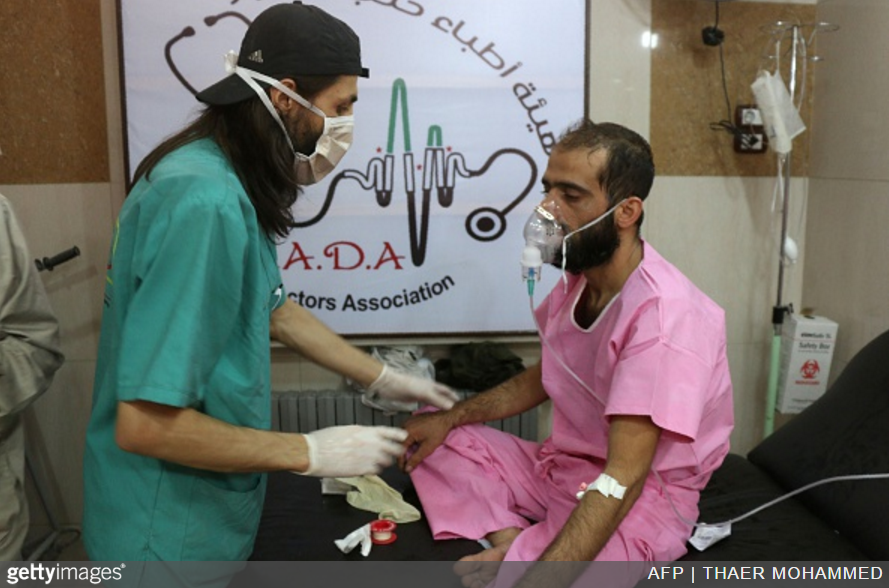In late September, the largest hospital on the rebel-held side of Aleppo was bombed by Syrian or Russian planes, taking it temporarily out of commission and leaving only six hospitals operational in the area. This week, Aleppo’s M10 hospital was bombed yet again, leaving two doctors and a pharmacist wounded.
The bombings of aid convoys and hospitals are no accident: Physicians for Human Rights, a NGO, has recorded 373 attacks on 265 medical facilities, and the deaths of 750 medical workers from the start of the Syrian conflict to August 2016
Though there are over 160 NGOs delivering assistance to victims of the Syrian civil war, these humanitarian agencies face major challenges in negotiating access to besieged areas and medical supplies. Aid workers have had to experiment through trial and error to build trust and relationships with various stakeholders in conflict zones, from rebel groups to the Syrian government.
On October 6, the Harvard Kennedy School held a panel on protecting medical personnel and operations on the front lines. Dr. Michael VanRooyen said that medical personnel and hospitals are seen as strategic targets to weaken enemies and hinder their capacity to resist. According to VanRooyen, the director of the Harvard Humanitarian Initiative and the chairman of emergency medicine at Brigham and Women’s Hospital, the attacks on hospitals in Syria “take days of planning.”
In Syria, the recent erosion of access for humanitarian aid workers and the targeting of medical infrastructure have complicated assistance efforts and forced many hospitals to go underground. Some operate in bunkers with no heating and are lacking in facilities, presenting extreme challenges to physicians working there. Few traditional hospitals remain in rebel-held Aleppo, and ambulances are covered with mud as disguise, because they are often deliberately targeted.
Negotiation efforts to deliver supplies to hospitals have also proven to be problematic. Many patients report chronic illnesses like hypertension, cardiac diseases, and diabetes, but physicians lack the medical supplies to treat them. It is also extremely difficult to get battlefield first aid kits to Syria, because the government worries that if wounded rebels are healed, they will recover and return to the fight. Thus, humanitarian agencies like the International Committee of the Red Cross (ICRC) have had to start by negotiating access for less sensitive supplies to treat chronic diseases.
Francois Stamm, the head of the ICRC’s regional delegation in Washington, spoke of the organization’s difficulties in engaging with armed militant groups like ISIS and Boko Haram. So far, the ICRC has been unable to establish contact and find common ground with these groups, particularly in the medical field. “The ICRC’s current strategy,” Stamm explained, “is to build credibility through patience as an impartial group to provide assistance to civilians living in areas held by these groups.”
According to the Geneva Conventions, it is a war crime to deliberately attack civilian installations like hospitals, and medical personnel are also protected under international humanitarian law. Tasked with saving the lives of both civilians and combatants, medical workers enjoy a special protected legal status. However, it has become increasingly difficult to compel parties involved in the Syrian war to respect this neutrality.
Syria is not the only place where hospitals have been targeted: Several hospitals in Yemen have been bombed recently amid that country’s civil war, and in October 2015, the United States launched a deadly airstrike on a Doctors Without Frontiers (MSF) hospital in Kunduz, Afghanistan – an attack it later said was a mistake.
In response to the bombing of hospitals in Syria, the UN Security Council enacted resolution 2286 in May 2016, condemning attacks against medical facilities and physicians as a violation of international humanitarian law. Yet although the measure was cosponsored by over 80 countries, hospitals have continued to be targeted, highlighting the problem of enforcement and the difficulty of holding those at fault accountable. Professor Claude Bruderlein of Harvard University, the director of the Program on Humanitarian Policy and Conflict Research, called for “a re-evaluation of current strategies that include campaigning, advocacy, and denunciation of violations when one of the P5 members is involved in bombing healthcare facilities in Aleppo.”
Today, there are few physicians left in Syria, and many of those who have stayed are there because they feel bound by their values to remain and help their countrymen. Although applauded by physicians across the world, it has been difficult to retain Syrian medical staff given the turmoil, and many have fled to countries that offer a higher salary and a more stable environment.
The question going forward is: How can the international community confront these attacks? The problem of non-compliance with international law must be addressed more rigorously. As the war continues without an end in sight, the failure of the status quo to protect hospitals and medical personnel calls out for a new strategy to safeguard aid workers and other civilians in Syria.
